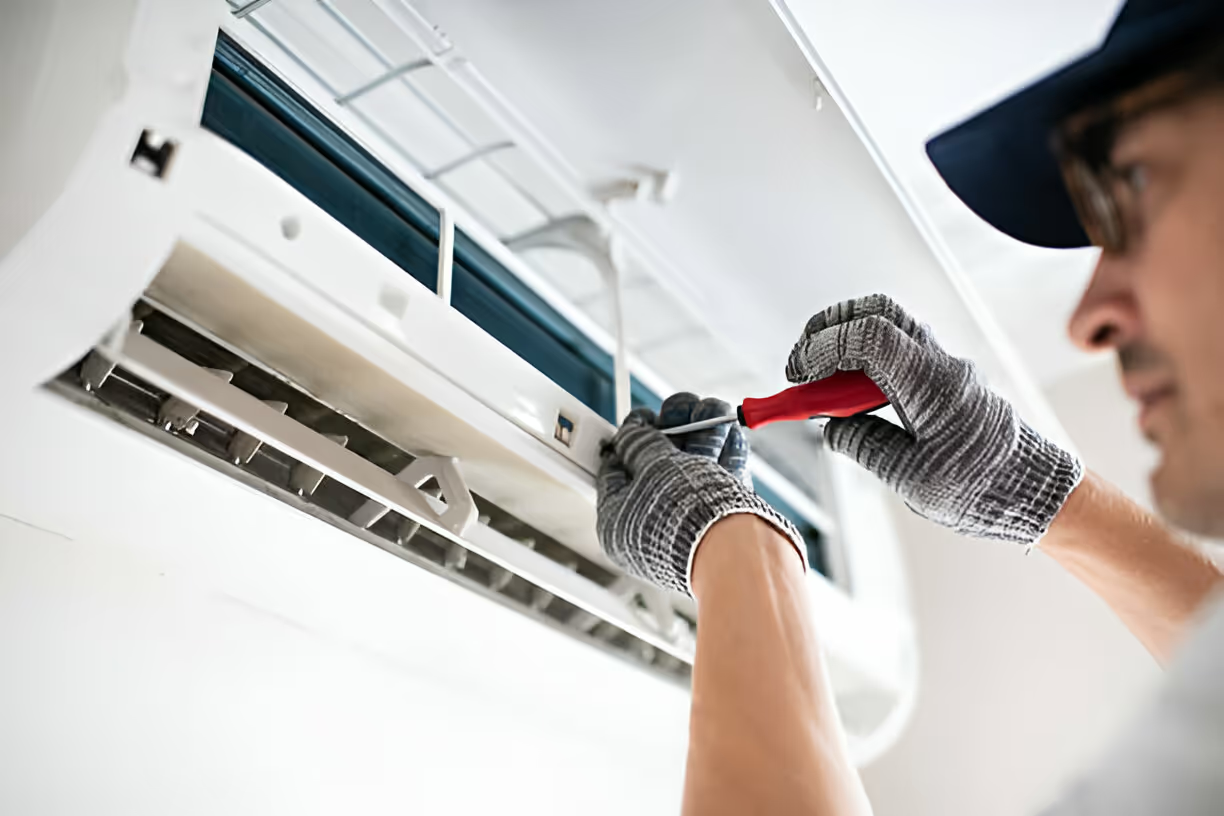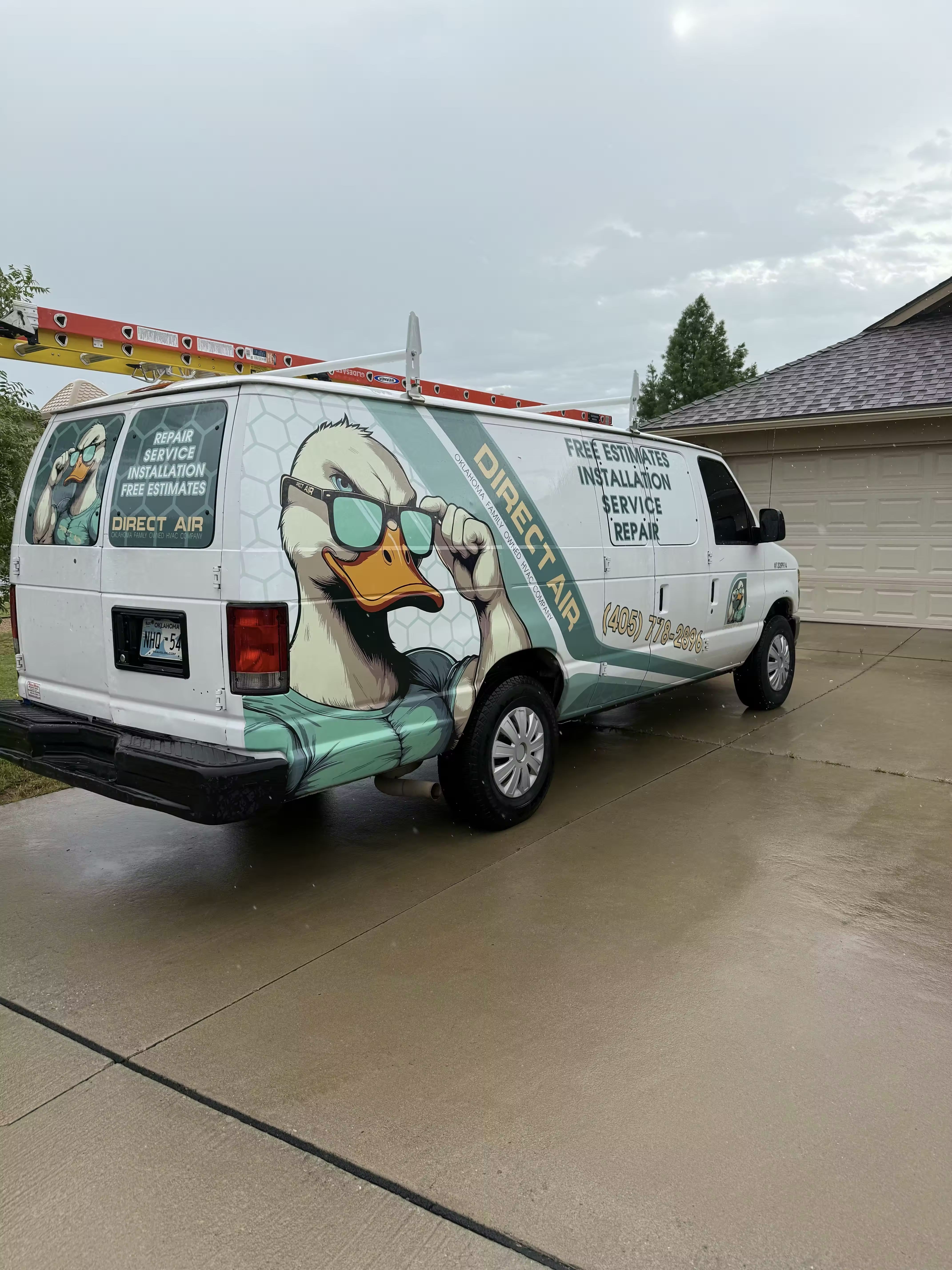Emergency AC Repair in Norman, OK


This page addresses the critical need for emergency AC repair in Norman, OK, defining urgent AC failures like system breakdowns, alarming noises, or major leaks. It outlines a swift 6-step repair process, ensuring rapid dispatch, accurate diagnosis, and efficient service to quickly restore home comfort. The content also guides homeowners on deciding whether to repair or replace their unit, considering age and cost for an informed, long-term solution.

24/7 Emergency AC Repair in Norman, OK
When your air conditioner fails during a sweltering Norman summer day or in the middle of a humid night, it’s more than an inconvenience—it’s an emergency. A broken AC unit can quickly lead to uncomfortable and even unsafe indoor temperatures, disrupting your family’s comfort and well-being. We understand the urgency of your situation. Our team is dedicated to providing rapid, reliable, and expert emergency AC repair services throughout Norman, OK, ensuring your home returns to a safe and comfortable state as quickly as possible.
What Qualifies as an AC Emergency?
While any loss of cooling is frustrating, certain situations require immediate professional attention to prevent further system damage, property damage, or safety hazards. If you are experiencing any of the following, it is considered an AC emergency.
Complete System Breakdown: If your air conditioner will not turn on at all, especially during periods of extreme heat, your home can become dangerously warm. This is a top priority, particularly for households with young children, elderly individuals, or those with health conditions.
Loud, Alarming Noises: Banging, screeching, grinding, or clanking sounds from your indoor or outdoor unit are not normal. These noises often indicate a serious mechanical failure, such as a broken motor bearing or a loose component. Continuing to run the unit could cause catastrophic damage. Turning the system off and calling for emergency service is the safest course of action.
Strange Electrical or Burning Smells: Any odor resembling burning plastic, gunpowder, or "dirty socks" coming from your vents is a major red flag. These smells can signal an overheated motor, frayed wiring, or other electrical malfunctions that pose a significant fire risk. Shut down your HVAC system at the circuit breaker immediately.
Significant Water Leaks: While some condensation is normal, a large puddle of water forming around your indoor unit indicates a problem, such as a clogged condensate drain line or a cracked drain pan. Left unaddressed, this can lead to serious water damage, structural issues, and mold growth.
Frozen Evaporator Coils: If you see a layer of ice on the copper lines or coils of your AC unit, it points to a serious issue, often related to restricted airflow or low refrigerant levels. Operating an air conditioner with frozen coils can severely damage the compressor, the most expensive component of your system.
Signs of a Refrigerant Leak: A hissing sound from your unit, coupled with a lack of cool air and potentially ice buildup, often indicates a refrigerant leak. Refrigerant is essential for cooling and can be hazardous. A leak requires immediate professional attention to repair and safely recharge the system.
Our Proven Emergency Repair Process
We know that an AC emergency is stressful. Our process is designed to be clear, straightforward, and efficient, giving you peace of mind from the moment you call.
Step 1: Your Urgent Call for Service
When you contact us, our team will listen carefully to understand the symptoms your AC is exhibiting. We will gather essential information and may provide simple troubleshooting advice you can perform safely while you wait, such as checking your thermostat settings or circuit breaker.
Step 2: Rapid Dispatch to Your Norman Home
Once we confirm you need emergency service, we dispatch a certified technician to your location. Our team is familiar with the Norman area, ensuring we can arrive promptly to begin our assessment.
Step 3: Thorough and Accurate Diagnosis
Upon arrival, our technician will conduct a comprehensive diagnostic evaluation of your entire HVAC system. Using advanced tools and their extensive experience, they will pinpoint the exact cause of the failure, not just the symptoms.
Step 4: Clear Explanation and Upfront Quote
Before any repair work begins, our technician will explain the problem to you in clear, easy-to-understand terms. You will receive a detailed, upfront quote for the necessary repairs. We believe in complete transparency, so you will know the full scope and cost of the work before we proceed.
Step 5: Professional and Efficient Repair
With your approval, our technician will perform the repair using high-quality parts and industry-best practices. Our service vehicles are well-stocked with common components to resolve many issues in a single visit, minimizing your downtime and discomfort.
Step 6: System Testing and Final Verification
After the repair is complete, we don’t just pack up and leave. We test the system thoroughly to ensure it is operating correctly, efficiently, and safely. We will verify that cool air is flowing properly and that the root cause of the emergency has been resolved.
Repair or Replace? Making an Informed Decision
In some emergency situations, a simple repair may not be the most cost-effective long-term solution. Our technicians will provide honest, expert advice to help you decide whether to repair your current unit or consider a replacement. We often guide homeowners using the "$5,000 Rule" as a starting point.
The $5,000 Rule: Multiply the age of your AC unit by the estimated cost of the repair. If the total exceeds $5,000, replacement is often the more financially sound option.
Beyond this rule, we’ll help you consider other critical factors:
- Age of the System: Most air conditioners have a lifespan of 10-15 years. If your unit is approaching or has surpassed this age, investing in major repairs may not be wise.
- Frequency of Breakdowns: If you are calling for repairs multiple times a year, the cumulative cost can quickly approach the price of a new, reliable system.
- Energy Efficiency: Older units are significantly less efficient than modern systems. A new, high-efficiency unit can lead to substantial savings on your monthly energy bills.
- Refrigerant Type: If your system uses R-22 refrigerant (Freon), it is being phased out. The cost of this refrigerant is extremely high, and a leak can make repairs prohibitively expensive.
Our goal is to provide you with all the information you need to make the best choice for your home, your comfort, and your budget, without any sales pressure.

Financing
.png)







